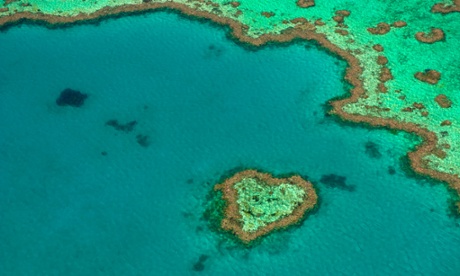Conservationists have bought the last commercial-fishing licence of its type in the northern Great Barrier Reef, creating a “net-free zone” larger than Tasmania to protect dugongs, dolphins and turtles.
WWF-Australia announced on Monday it had taken over and would retire Tony Riesenweber’s commercial “gill net” licence – which held the “last sizeable quota” for the northern reef – effectively creating a 100,000 sq km refuge stretching from Cape Flattery through to the Torres Strait.
Richard Leck, the head of oceans for WWF-Australia, said it was now time for the state and federal governments to make commercial gill netting on the northern Great Barrier Reef “forever prohibited”.
“By purchasing gill net licences WWF has done the heavy lifting,” he said.
“Creating one of the largest safe havens for dugongs in the world is a globally significant initiative.
“Now we’re calling on the Australian and Queensland governments to create a special management area over the Reef’s far north to permanently protect this area from commercial gill net fishing.”
This came after WWF launched its vision for a “Net Free North” after buying another of the region’s commercial gill net licences in 2018.
Leck said marine turtles, snubfin dolphins, sawfish, hammerhead sharks and the critically endangered Bizant River shark would now also be protected. He also called for an expanded network of net-free zones along the length of the Great Barrier Reef’s coasts.
Though the licences WWF has bought would “never be used for commercial gill net fishing again”, it hoped to hand them over to traditional owners on the Cape for “sustainable fishing” practices such as line or mud crabbing, or to generate income from charters.
The organisation is understood to have paid Riesenweber an amount at the lower end of six figures for his licence.
Riesenweber mainly sought to catch barramundi with the gill net, which he said he used on or around river mouths and areas with muddy or sandy bottoms.
The fisher described the WFF’s offer as a rare case of “someone outside doing something positive” for an industry which he said had been abandoned by the government.
“They are trying to stand with the industry, in a lot of respects,” Riesenweber said of WWF.
“So at least some fishermen can get out with a bit of dignity.”
Conservationists describe gill nets as “walls of death”, but Riesenweber disputed the characterisation of them as indiscriminate killers. He said commercial operators had a vested interest in sustainable fishing, but described selling his licence as “a compromise”.
“They wanted it, they had a good reason for it and they gave me an offer that I considered reasonable,” he said. “We all want the same result at the end of day … what we gotta do is understand everyone’s point of view.
“You never trust your enemy, but you can understand them.”
The 68-year-old said he would continue to commercially line fish on the outer reefs, but was concerned about rising fuel prices and seafood imports.
Riesenweber said his grandfather had fished Moreton Bay and his dad had died on a trawler in 1971.
“When I retire I want to be able to buy fresh Australian fish,” he said. “But the way we are heading is we won’t be able to do that.”
Leck said WWF supported sustainable fishing on the reef – commercial and recreational.
“It’s just unfortunate that still, within the World Heritage area, we have a number of poor fishing practices and a lot of room for improvement of fisheries management,” Leck said.
Riesenweber’s is the fourth gill net licence bought by WWF on the reef. Two were bought primarily to protect dugongs, two others for hammerhead sharks.
“It’s not normal practice for a conservation organisation to buy and shelve commercial net fishing licences,” Leck said.
“But it was a practical way to remove the threat of gill nets from a section of the reef [that is] incredibly important for threatened species.”
WWF has focused on the northern section of the reef as it has the highest proportion of threatened marine wildlife, with the area north of Cape Flattery home to about 7,000 dugongs and 282,000 large juvenile and adult turtles.
Leck said there was no formal recording of the entanglement and drowning of threatened marine species in nets. But WWF points to recent marine deaths they say demonstrate the dangers of gill nets.
In September 2018, six sawfish and two dugongs washed up on a beach south of Townsville. All were believed killed by gill nets.
“Australia’s nature needs us now more than ever,” Leck said.











